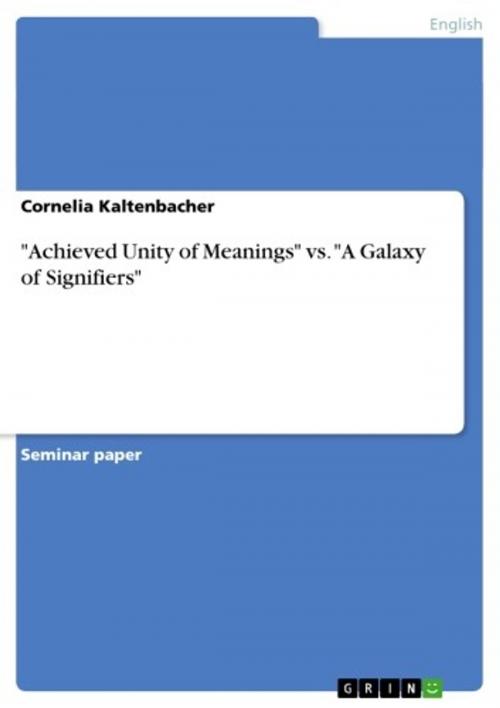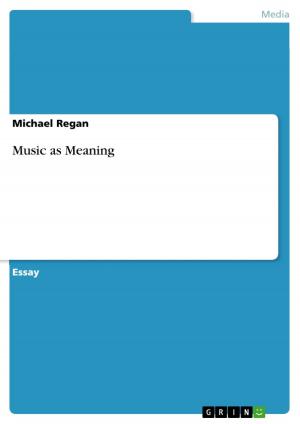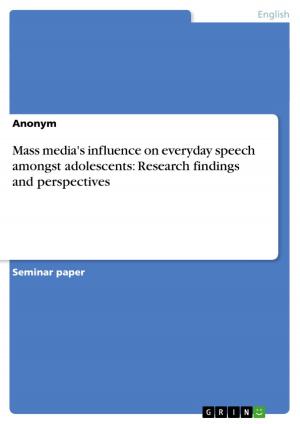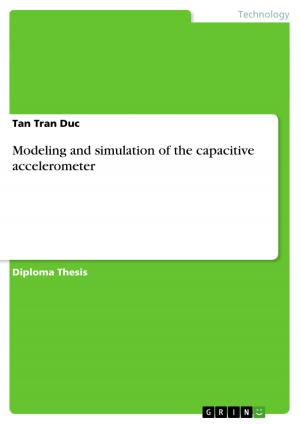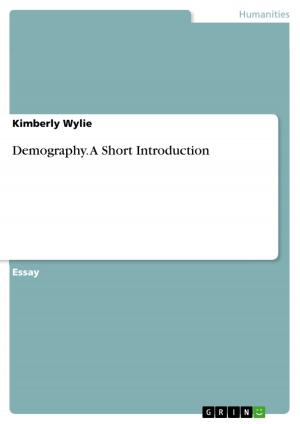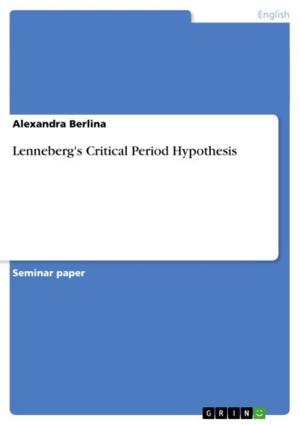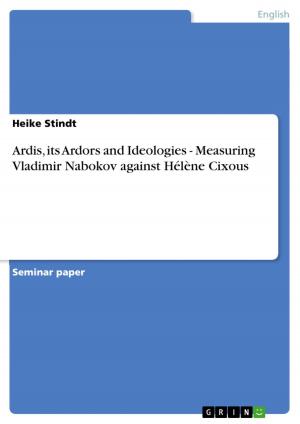| Author: | Cornelia Kaltenbacher | ISBN: | 9783638254144 |
| Publisher: | GRIN Publishing | Publication: | February 14, 2004 |
| Imprint: | GRIN Publishing | Language: | English |
| Author: | Cornelia Kaltenbacher |
| ISBN: | 9783638254144 |
| Publisher: | GRIN Publishing |
| Publication: | February 14, 2004 |
| Imprint: | GRIN Publishing |
| Language: | English |
Seminar paper from the year 2003 in the subject English Language and Literature Studies - Comparative Literature, grade: Good, University of Dusseldorf 'Heinrich Heine' (Anglistics), course: Contemporary Literature Theory and Criticism, 20 entries in the bibliography, language: English, abstract: 'Criticism, is the overall term for studies concerned with defining, clasifying, analysing, interpreting, and evaluating works of literature.'1 What I'm going to analyze in this work is not criticism, but 'theoretical criticism'. Theoretical criticism proposes a theory of literature, in the sense of general principles, together with a set of terms, distinctions and categories , to be applied to identifying and analyzing works of literature, as well as the 'criteria'2 by which these works and their writers are to be evaluated. Since the 1970s there has been a flood of writings, Continental, American and English, proposing diverse nove l and radical forms of critical theory. Why do we need criticism? In order to understand texts or to give them the 'right interpretation'3. But can one speak about a right interpretation? In order to find a plausible answer to this question, I will focus on two of the most important modern literary theories, namely New Criticism, defined as 'an achieved unity of meanings'4 and Deconstruction as 'a galaxy of signifiers'5, comparing the two ones by means of the consulted essays on New Criticism and Deconstruction. But before comparing the two theories, I will first introduce you into the meaning and features of both theories, presenting you some of the most important critics and their essays and critical theories referring to New Criticism and Deconstruction. I will dedicate the last two units of my paper to an ample comparison between New Criticism and Deconstruction, showing you, that there are both similarities and differences to find in the two theories, and that in spite of all the differences, the former survives in the last one. Moreover, I will point some personal conclusions concerning my own point of view to the topics mentioned above.
Seminar paper from the year 2003 in the subject English Language and Literature Studies - Comparative Literature, grade: Good, University of Dusseldorf 'Heinrich Heine' (Anglistics), course: Contemporary Literature Theory and Criticism, 20 entries in the bibliography, language: English, abstract: 'Criticism, is the overall term for studies concerned with defining, clasifying, analysing, interpreting, and evaluating works of literature.'1 What I'm going to analyze in this work is not criticism, but 'theoretical criticism'. Theoretical criticism proposes a theory of literature, in the sense of general principles, together with a set of terms, distinctions and categories , to be applied to identifying and analyzing works of literature, as well as the 'criteria'2 by which these works and their writers are to be evaluated. Since the 1970s there has been a flood of writings, Continental, American and English, proposing diverse nove l and radical forms of critical theory. Why do we need criticism? In order to understand texts or to give them the 'right interpretation'3. But can one speak about a right interpretation? In order to find a plausible answer to this question, I will focus on two of the most important modern literary theories, namely New Criticism, defined as 'an achieved unity of meanings'4 and Deconstruction as 'a galaxy of signifiers'5, comparing the two ones by means of the consulted essays on New Criticism and Deconstruction. But before comparing the two theories, I will first introduce you into the meaning and features of both theories, presenting you some of the most important critics and their essays and critical theories referring to New Criticism and Deconstruction. I will dedicate the last two units of my paper to an ample comparison between New Criticism and Deconstruction, showing you, that there are both similarities and differences to find in the two theories, and that in spite of all the differences, the former survives in the last one. Moreover, I will point some personal conclusions concerning my own point of view to the topics mentioned above.
